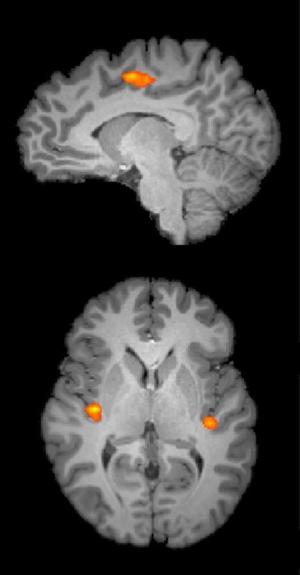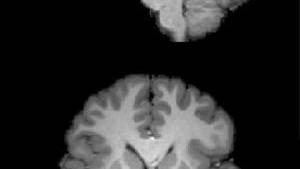When People Worry About Math, the Brain Feels the Pain
Source: sciencedaily.com

Mathematics anxiety can prompt a response in the brain similar to when a person experiences physical pain, according to new research at the University of Chicago.
Using brain scans, scholars determined that the brain areas active when highly math-anxious people prepare to do math overlap with the same brain areas that register the threat of bodily harm -- and in some cases, physical pain.
"For someone who has math anxiety, the anticipation of doing math prompts a similar brain reaction as when they experience pain -- say, burning one’s hand on a hot stove," said Sian Beilock, professor of psychology at the University of Chicago and a leading expert on math anxiety.
Surprisingly, the researchers found it was the anticipation of having to do math, and not actually doing math itself, that looked like pain in the brain. "The brain activation does not happen during math performance, suggesting that it is not the math itself that hurts; rather the anticipation of math is painful," added Ian Lyons, a 2012 PhD graduate in psychology from UChicago and a postdoctoral scholar at Western University in Ontario, Canada.
The two report their findings in a paper, "When Math Hurts: Math Anxiety Predicts Pain Network Activation in Anticipation of Doing Math," in the current issue of PLoS One.
For the study, the scholars worked with 14 adults who were shown to have math anxiety based on their responses to a series of questions about math. The questions gauged one’s anxiety when receiving a math textbook, walking to math class or realizing math requirements for graduation. Additional tests showed that these individuals were not overly anxious in general; instead, their heightened sense of anxiety was specific to math-related situations.
The study volunteers were tested in an fMRI machine, which allowed researchers to examine brain activity as they did math. Volunteers were given mathematics equations to verify -- for example, the validity of the following equation: (12 x 4) -- 19 = 29. While in the fMRI scanner, subjects were also shown short word puzzles. For these puzzles, people saw a series of letters (for example: yrestym) and had to determine if reversing the order of the letters produced a correctly spelled English word.
The fMRI scans showed that the anticipation of math caused a response in the brain similar to physical pain. The higher a person’s anxiety about math, the more anticipating math activated the posterior insula -- a fold of tissue located deep inside the brain just above the ear that is associated with registering direct threats to the body as well as the experience of pain. Interestingly, math anxiety levels were not associated with brain activity in the insula or in any other neural region when volunteers were doing math.
The work by Lyons and Beilock suggests that, for those with math anxiety, a painful sense of dread may begin long before a person sits down to take a math test. Previous research has shown that highly math anxious individuals tend to avoid math-related situations and even math-related career paths. The current work suggests that such avoidance stems in part from painful anxiety.
[...]

UChicago researchers have found that the higher a person’s anxiety about math, the more anticipating math activated areas of the brain related to experiencing pain.
Read the full article at: sciencedaily.com






















